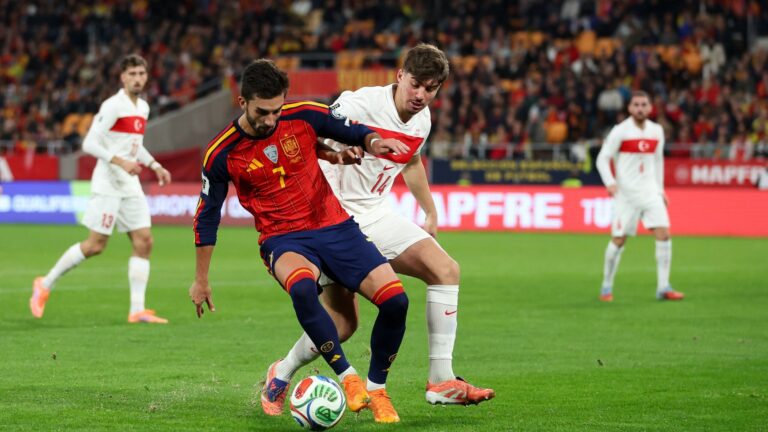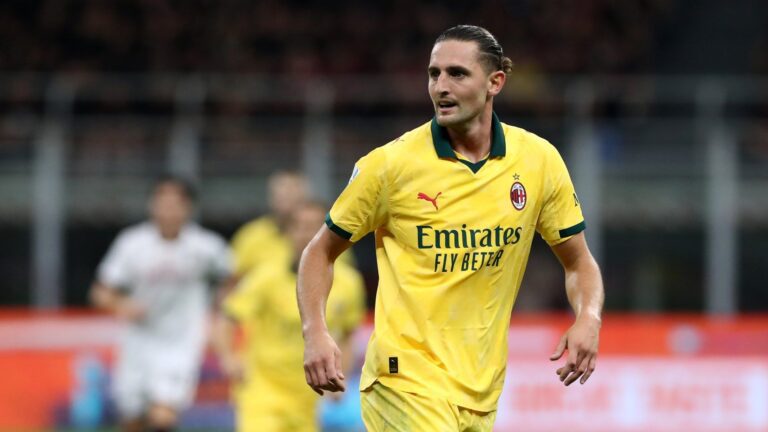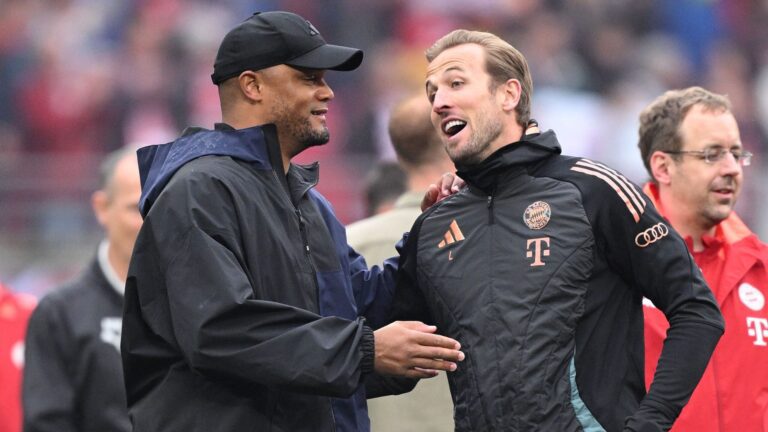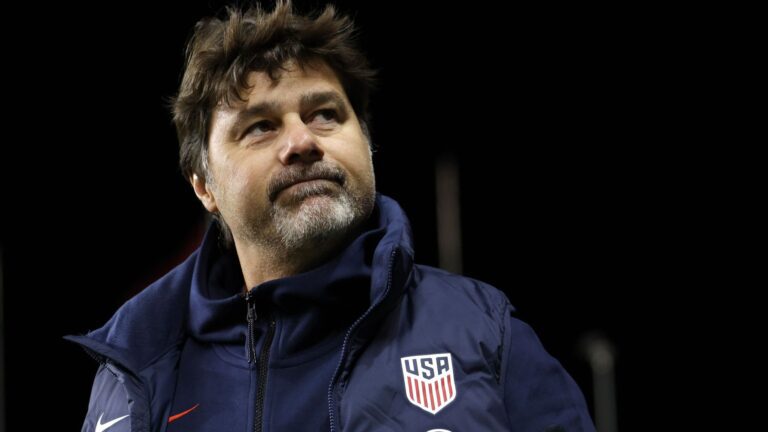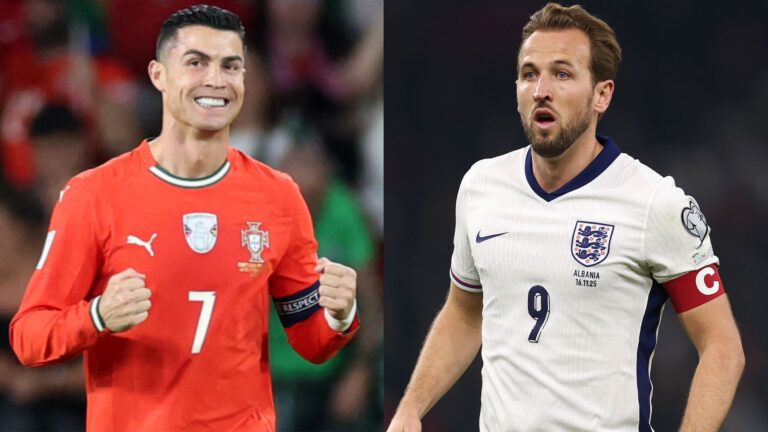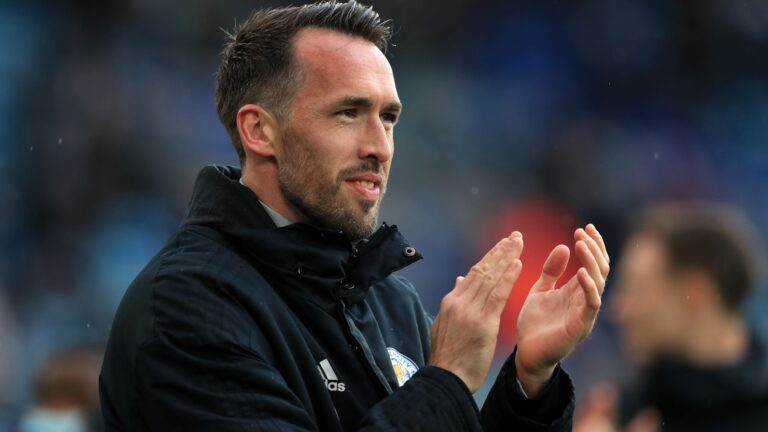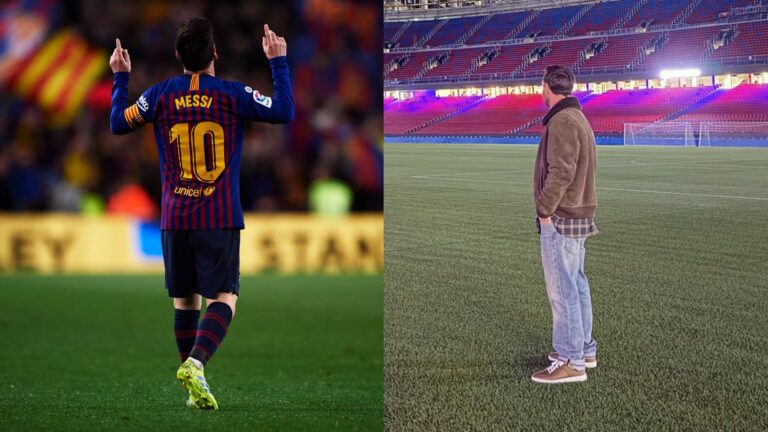


The Astonishing Twist: Barcelona’s Request to Limit Lewandowski’s Scoring Spree
Robert Lewandowski and Barcelona‘s unusual directive during his first year at the club have sparked widespread intrigue, revealing the intricate balance between financial strategy and on-field performance in modern football.
Barcelona’s Financial-Driven Plea to the Polish Forward
In the book “Lewandowski: The Untold Story” by Sebastian Staszewski, claims emerge that Barcelona officials encouraged the striker to ease off on his goal-scoring efforts. As the team had already locked in the league championship with Xavi Hernandez at the helm and just two games left, an odd conversation unfolded. Sources indicate that shortly after securing the title mathematically, Lewandowski was called in for talks with top executives. At that stage, he was dominating the scoring leaderboard with 23 goals, far surpassing his rivals. Unexpectedly, the discussion shifted to a direct appeal.
One executive reportedly stated, “Robert, it’s best if you avoid finding the net in the final pair of matches.” This directive left the veteran player in disbelief, as throughout his extensive career, no team had ever suggested he rein in his talents. The motivation behind this wasn’t about tactics on the pitch but stemmed from economic pressures.
The Catalan club, still grappling with tight financial limitations, faced a specific condition in Lewandowski’s transfer from Bayern Munich. Hitting 25 league goals would trigger an extra €2.5 million payment to the German side as part of performance bonuses. With the championship already in hand and resources under strain, Barcelona supposedly chose this unconventional and debatable tactic to safeguard their finances. Lewandowski participated fully in those last two fixtures without adding to his tally, yet he claimed the Pichichi Trophy as La Liga’s leading marksman, outpacing Karim Benzema.
AC Milan’s Ambitious Move for the Veteran Goal Machine
Reports from the Italian source Calciomercato suggest that AC Milan is gearing up for a more determined push to acquire the 37-year-old sharpshooter in the upcoming transfer window. The Serie A outfit has marked Lewandowski as a key acquisition for the summer, anticipating that his expertise could accelerate their overhaul under coach Massimiliano Allegri. Initial discussions have occurred between Milan’s sporting director Igli Tare and Lewandowski’s agent, Pini Zahavi. Upcoming negotiations are set to tackle the major hurdle: compensation.
Currently, Lewandowski commands a net salary of about €20 million annually at Barcelona, which dwarfs the earnings of Milan’s top earner, Rafael Leao, by nearly threefold. While matching this sum is out of reach for the Italian club, they are optimistic that the player now prioritizes thrilling competition and a solid long-term vision over pure earnings. On the other hand, Barcelona seems to be pivoting toward refreshing their forward line, with potential successors like Dusan Vlahovic, Julian Alvarez, and the emerging talent Karl Etta Eyong from Levante being considered in internal scouting talks.
Lewandowski’s Enduring Excellence on the Field
Amid doubts regarding his age and position, Lewandowski keeps proving his worth through his performances. Despite not always starting in the lineup this season, he leads Barcelona’s scoring in La Liga with seven goals, surpassing teammates such as Fermin Lopez, Lamine Yamal, and Ferran Torres. His recent hat-trick against Celta Vigo boosted his total to 106 goals in 159 outings for the club, eclipsing Neymar’s record in Barcelona’s historical rankings. His initial season was nothing short of spectacular, netting 42 goals over 52 matches across various tournaments, and this year, his seven strikes in nine league games highlight his unyielding precision.
Lewandowski’s Personal Bond with Barcelona and Future Prospects
Even with rumors of potential moves swirling, insiders reveal that Lewandowski and his family have grown comfortably rooted in the city. In a conversation with ESPN, he shared his perspective: “What truly counts isn’t the trophies you’ve collected, but the ones you’re eager to pursue. I believe there’s still room for me to enhance my skills. Football, this squad, and this organization are my passions. Physically, I’m in great shape. Age doesn’t bother me; I’m proud to be nearing 37. I know I can still reach new heights and support my colleagues because my drive remains strong.”
Although his agreement with Barcelona extends to June 2026, the club hasn’t outlined any plans for renewal or his ongoing involvement. For someone of his caliber, this uncertainty is unusual, and it appears a resolution may be forthcoming soon.
Understanding Barcelona’s Strategy with Robert Lewandowski’s Scoring
Background on Lewandowski’s Arrival at Barcelona
When Robert Lewandowski made his highly anticipated move to Barcelona in the summer of 2022, fans and analysts alike expected the Polish striker to continue his prolific goal-scoring form from his Bayern Munich days. Lewandowski quickly became a key figure in the team’s attack, bringing experience, precision, and a killer instinct in front of goal. His debut season in La Liga showcased why he’s one of the best forwards in football history, with impressive contributions that helped Barcelona challenge for major titles.
This transition wasn’t just about individual performance; it tied into Barcelona’s broader tactical evolution. The club, known for its “tiki-taka” style under previous managers, was adapting to a more direct approach under Xavi Hernandez. Lewandowski’s scoring prowess aligned perfectly with this shift, but as the season progressed, whispers emerged about an unexpected directive from the club[başvurmak:[başvurmak:https://www.fcbarca.com/sezon/terminarz]. Let’s dive into what might have prompted Barcelona to urge Lewandowski to ease off his scoring spree toward the end of that first year.
Reasons Behind the Urging to Halt Scoring
It’s fascinating to think about why a club would ask a star player like Lewandowski to pull back on something he’s so naturally gifted at. While this decision might seem counterintuitive, it could stem from a mix of strategic, physical, and psychological factors. Here are some key reasons that could explain Barcelona’s approach:
- Injury Prevention and Player Longevity: Lewandowski was already in his mid-30s during his debut season, and maintaining a high-scoring rate can take a toll on the body. Barcelona might have been concerned about overexertion leading to injuries, especially with a demanding schedule packed with La Liga matches, Champions League games, and cup competitions. For instance, if Lewandowski was pushing for a goal in every game, it could lead to fatigue, as seen in similar cases with veteran players.
- Team Balance and Tactical Shifts: Football isn’t just about one player shining; it’s about the collective effort. Urging Lewandowski to hold back might have been a way to distribute the scoring load among other attackers like Pedri, Gavi, or young talents in the squad. This promotes a more balanced attack, preventing opponents from focusing solely on shutting down Lewandowski and allowing Barcelona to maintain their dynamic style[başvurmak:[başvurmak:https://www.fcbarca.com/ponad-100-lat.html. By encouraging a team-oriented approach, the club could foster better chemistry and reduce dependency on a single star.
- Managing Expectations and Media Pressure: In the world of football, media hype can build quickly around a player’s scoring streak, putting immense pressure on both the individual and the team. Barcelona may have wanted to avoid the ” Lewandowski scoring machine” narrative overwhelming the club’s overall story, especially if it distracted from their long-term goals. This strategy could help in keeping the focus on collective achievements rather than individual stats.
From a broader perspective, this move aligns with Barcelona’s history of prioritizing squad depth and sustainability, as evidenced by their evolution over more than a century[başvurmak:[başvurmak:https://www.fcbarca.com/ponad-100-lat.html].
The Potential Impact on Lewandowski and Barcelona
Delving deeper, let’s explore how this urging affected both the player and the team dynamics. One major aspect is how it influenced Lewandowski’s adaptation to life at Camp Nou.
Effects on Lewandowski’s Performance
In Lewandowski’s case, slowing down his scoring might have allowed him to refine other parts of his game, like playmaking and defensive contributions. Here’s a breakdown:
- Short-term Dip vs. Long-term Gains: While fans might have noticed a slight reduction in goals toward the season’s end, this could have prevented burnout. For example, by not chasing every opportunity, Lewandowski might have conserved energy for crucial matches, leading to more impactful performances in big games.
- Mental and Emotional Resilience: Top athletes like Lewandowski often face the challenge of maintaining motivation without constant high-stakes goals. This directive could have helped him build mental strength, focusing on enjoyment and team success rather than personal records.
How It Shaped Barcelona’s Season
On the team’s side, this decision could have played a pivotal role in their overall campaign:
- Encouraging Youth Development: By not relying solely on Lewandowski, Barcelona created space for younger players to step up, aligning with the club’s tradition of nurturing homegrown talent[başvurmak:[başvurmak:https://www.fcbarca.com/ponad-100-lat.html]. This not only boosted squad morale but also ensured a smoother transition for future seasons.
- Tactical Flexibility: Coaches often experiment with formations to counter opponents’ strategies. Urging Lewandowski to halt his scoring might have enabled Barcelona to switch to more defensive setups without losing offensive threat, making them a more versatile team in high-stakes competitions.
In essence, this approach highlights how football clubs like Barcelona balance individual brilliance with team harmony, especially during a player’s debut season.
Fan Reactions and Community Discussions
If you’re a Barcelona fan, you might have come across debates about this on fan forums. Discussions often revolve around whether this was the right call, with some arguing it preserved Lewandowski for the long haul[başvurmak:[başvurmak:https://www.fcbarca.com/la-rambla]. For instance:
- Pros from Fan Perspectives: Many appreciate the foresight in avoiding overreliance on one player, which could prevent a crisis if injuries occur.
- Cons and Critiques: Others feel it robbed the team of momentum, potentially costing them in tight title races.
This kind of strategy keeps the conversation alive in the community, making football even more engaging for supporters worldwide.
Lessons for Future Football Strategies
Looking at similar scenarios in football, urging a player to halt scoring isn’t unique to Lewandowski’s time at Barcelona. It reflects a growing trend in modern tactics where sustainability trumps short-term glory.
Key Takeaways for Clubs and Players
- Prioritizing Health Over Stats: Clubs are increasingly focusing on data-driven decisions, like monitoring player workloads to optimize performance.
- Building a Resilient Squad: By spreading responsibilities, teams can adapt to challenges, such as injuries or suspensions.
Ultimately, decisions like this underscore the evolving nature of football management, where strategic depth often leads to greater success in the long run.


